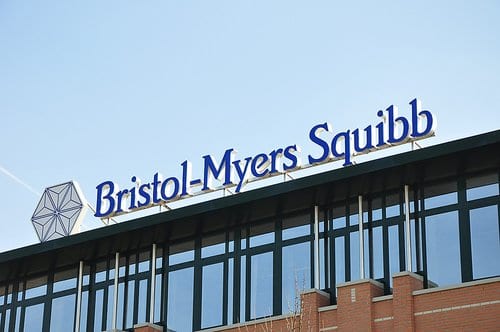
BMS pulls hep C combo treatment in US
pharmafile | October 7, 2014 | News story | Manufacturing and Production, Medical Communications, Research and Development, Sales and Marketing | BMS, Combo, HCV, asunaprevir, daclatasvir, hep C, sovaldi
Bristol-Myers Squibb will not attempt to bring its new combination hepatitis C treatment to the US market given the current scale of competition it would face from rival companies.
In a statement BMS says: “Given the rapidly evolving hepatitis C (HCV) treatment landscape in the US, [we] have decided that it will not pursue FDA approval of the dual regimen of daclatasvir and asunaprevir for the treatment of HCV genotype 1b patients in the United States.”
The company says it has also withdrawn its new drug application for asunaprevir, its NS3/4A protease inhibitor. This is at odds with the firm’s upbeat ‘excitement’ just six months ago when BMS submitted the combination treatment to the FDA.
Its relatively vague statement regarding the “rapidly evolving HCV treatment landscape” most likely relates to the run-away success of its rival Gilead’s new hep C pill Sovaldi (sofosbuvir), that can effectively cure the disease in around 90% of patients in just 12 weeks.
The efficacy of Sovaldi has also translated into astonishing sales – hitting over $2 billion in its first quarter for 2014, and $3.2 billion in its second – making it the fastest-selling medicine in the world and on course to break the $10 billion barrier this year, should the trajectory hold.
There are also new combination treatment regimens on the horizon that will combine with Sovaldi and potentially create even more impressive treatment results – something BMS may not be able to contend with, as recent data has shown its dual treatment is not as effective as Sovaldi and its NS5A inhibitor ledipasvir.
AbbVie is looking to reach the market with an all-oral treatment regimen, leading to further competition in the near future.
Sales will need to come from one drug
BMS adds that it will continue to pursue FDA approval of daclatasvir as a monotherapy however, after recently receiving a ‘breakthrough designation’ from the regulator.
This drug, a potent, pan-genotypic NS5A complex inhibitor (in vitro), is currently being investigated in multiple treatment regimens for HCV patients with high unmet need – and is expected to reach blockbuster status.
The company has already seen the combination treatment of daclatasvir and asunaprevir approved in July for use in Japan, but it will not attempt to do the same in the more lucrative market of the US.
In Europe, daclatasvir was recently approved for use in combination with other drugs across genotypes 1, 2, 3 and 4 for the treatment of HCV infection in adults, but BMS says it is not aiming for a combination treatment there either.
Ben Adams
Related Content

Elekta and BMS partner for digital treatment for melanoma
Elekta and Bristol Myers Squibb have announced a pilot collaboration in which the companies plan …

BMS acquires Mirati Therapeutics for $4.8bn
Bristol Myers Squibb (BMS) and Mirati Therapeutics have announced that they have entered into a …

BMS shares new research and development plans at the company’s R&D day
Bristol Myers Squibb (BMS) recently held a Research and Development (R&D) Day in New York, …








